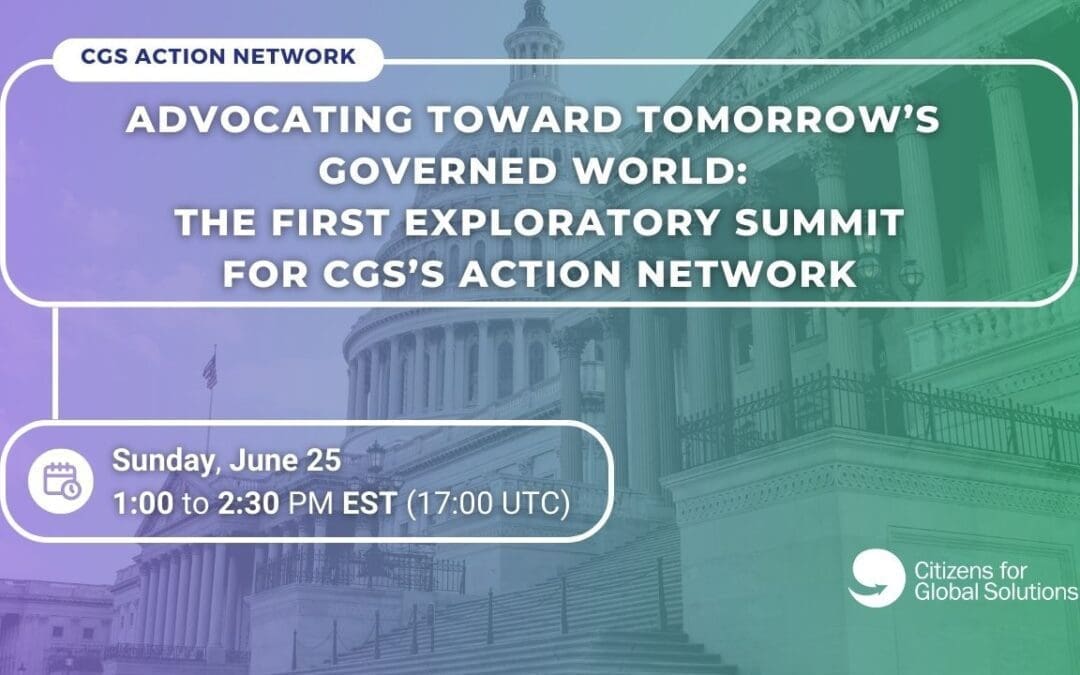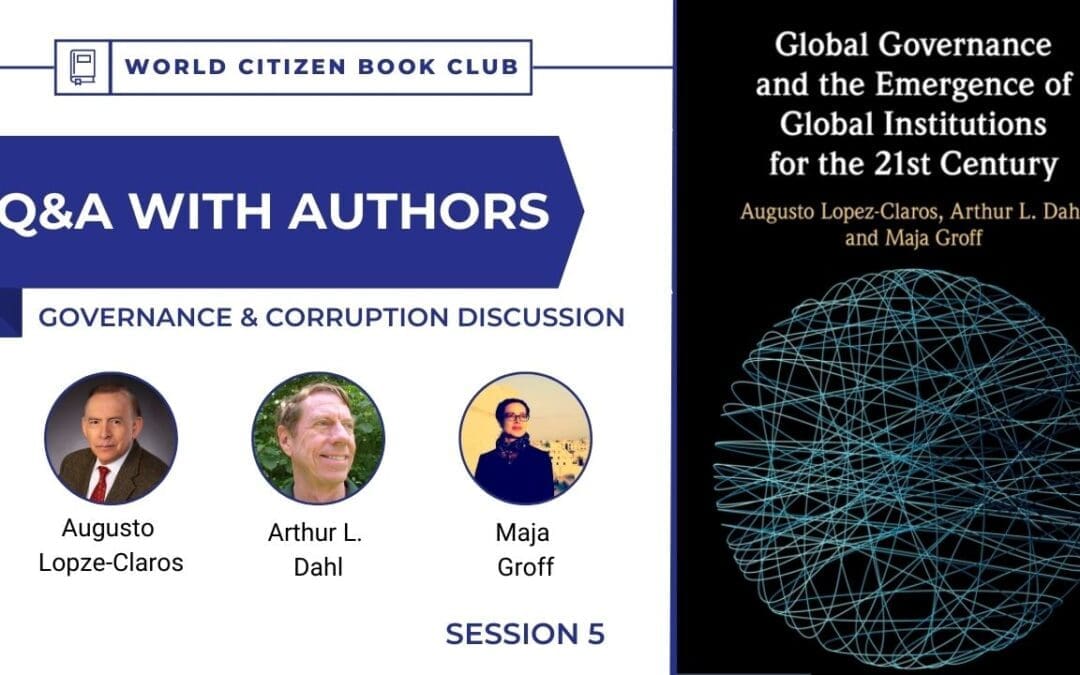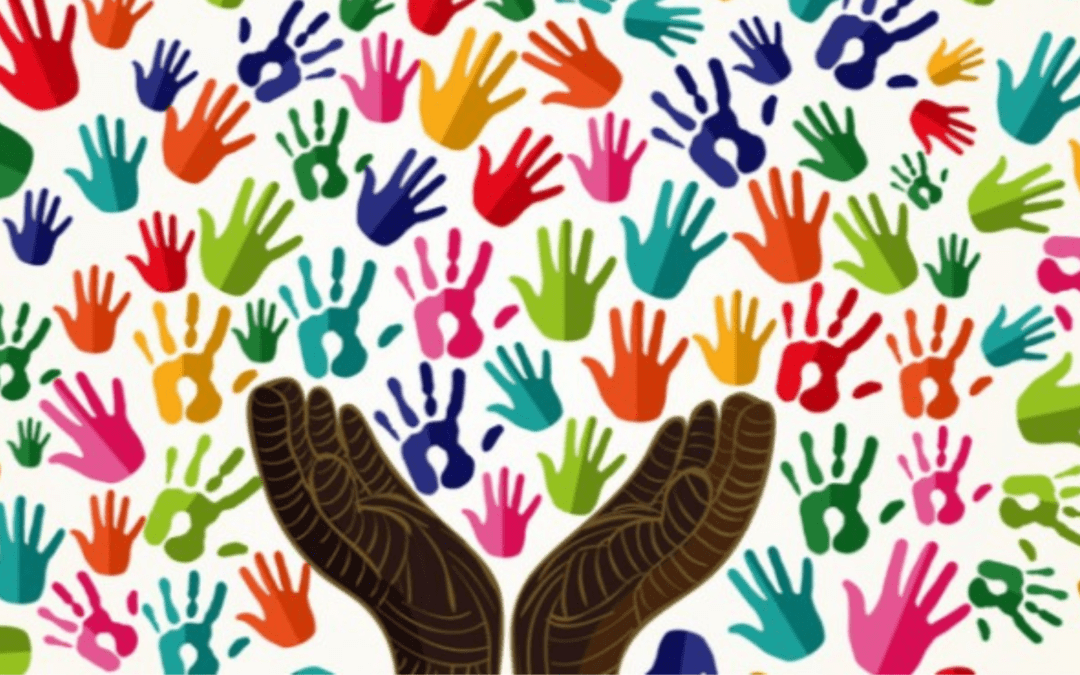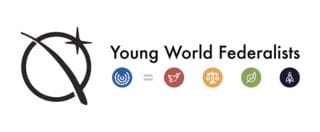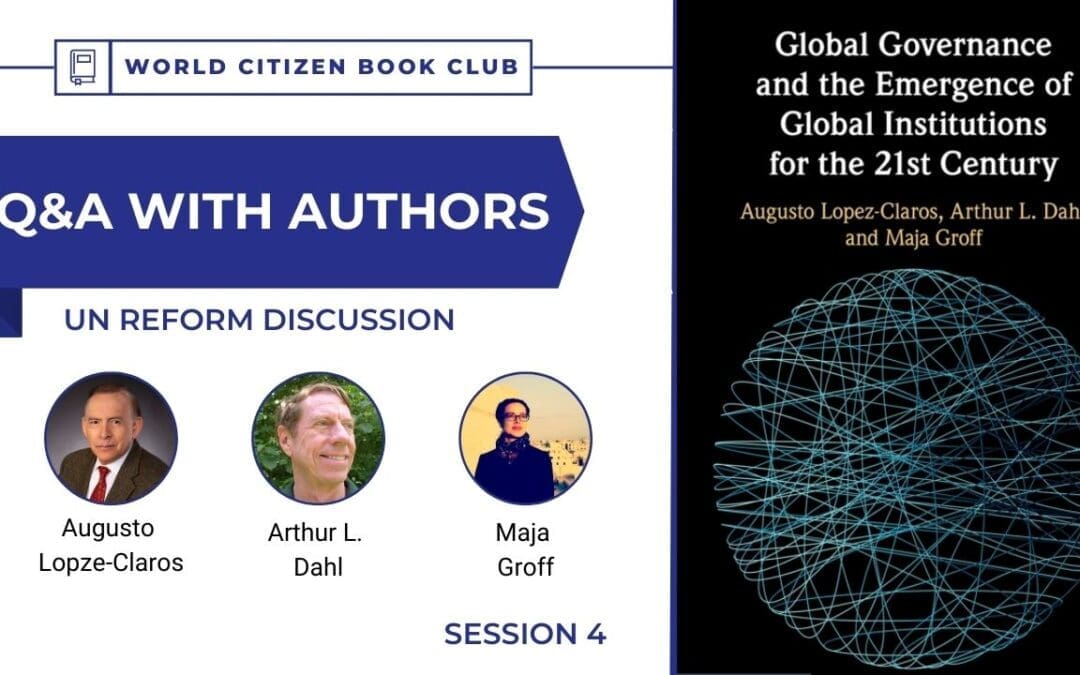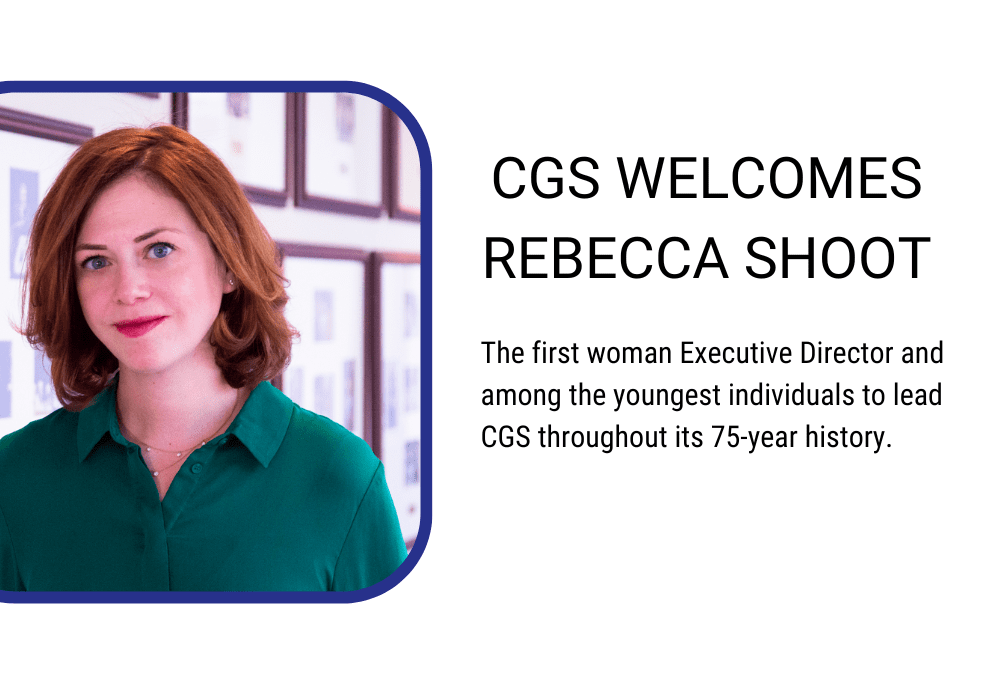
by Citizens for Global Solutions | Jun 20, 2023 | Press Release
Washington, DC– On Sunday, June 25, 2023, 1:00PM – 2:30PM EST, Citizens for Global Solutions (CGS) will convene a unique hybrid event to explore current concrete apertures for grassroots engagement to achieve foundational principles of democratic world federation and combat such critical global challenges as violations of international law and human rights, environmental degradation, and escalating armament.
The “Exploratory Summit” comes as CGS embarks on a new chapter, seeking innovative and ambitious solutions to current threats to inform advocacy by our Action Network.[1] At this summit, we invite subject matter experts and leading activists dedicated to our core causes and foundational values to share their perspectives on the contemporary means and methods for advocacy. Participants will have the opportunity to engage in discussion with thought leaders and join CGS’s action efforts following the summit.
Topics will include:
Supporting International Institutions through Informed Reform [Augusto Lopes-Claros]
Promoting Treaty-Based International Law [Kristin Smith]
Advancing Climate Justice and Disarmament as Components of World Federation [Alyn Ware]
Mobilizing the Next Generation through Youth Outreach and Intergenerational Approaches [Jacopo DeMarinis]
We hope you will join us for this unique event. For more information, please contact: outreach@globalsolutions.org
About Citizens for Global Solutions
Citizens for Global Solutions (CGS) is a nonpartisan, non-profit non-governmental organization (NGO) that advocates for democratic global governance predicated on the rule of law and the protection of human rights. For more than 75 years, Citizens for Global Solutions (CGS) has dedicated itself to the grand vision of a united planet. We mobilize our members to take action to promote policies and institutions that address global challenges such as peace and security, climate change, and human rights abuses. We catalyze change through grassroots organizing, education and outreach programs, policy advocacy, and engagement with policymakers at national and international level.
[1] CGS-Education Fund is a registered 501(c)(3). The CGS Action Fund is incorporated as a 501(c)(4).

by Citizens for Global Solutions | Jun 10, 2023 | Past Event
Session 5 of the book, Global Governance and the Emergence of Global Institutions for the 21st Century (2020) with all three authors, Augusto Lopez-Claros, Arthur Dahl, and Maja Groff. This session’s final discussion will include additional insights on the topics of corruption, education, values and principles to operationalize global good governance, immediate steps forward, and conclusions.

by Citizens for Global Solutions | May 29, 2023 | Organizational Statement
Washington, D.C. On May 21, Citizens for Global Solutions (CGS) and Young World Federalists (YWF) joined UNESCO, the UN, and civil society throughout the world in commemorating the World Day for Cultural Diversity for Dialogue and Development. In doing so, we recognize the centrality of the intertwined values of cultural diversity and intercultural dialogue to humanity, as well as their necessity to achieve the Sustainable Development Goals (SDGs) and foster world peace.
Why is it necessary to reflect on and honor Cultural Diversity for Dialogue and Development? Twenty years ago, the UN General Assembly established the World Day for Cultural Diversity for Dialogue and Development (A/RES/57/249). The necessity of recognizing this day is threefold:
First, the ability to practice and thrive in one’s culture is a universal, inalienable, and interdependent human right. Originally enshrined in the core human rights documents, the 2030 Agenda for Sustainable Development now proclaims, “We pledge to foster intercultural understanding, tolerance, mutual respect, and an ethic of global citizenship… and recognize that all cultures and civilizations can contribute to, and are crucial enablers of, sustainable development.” Target 11.4 explicitly states the goal of “strengthen[ing] efforts to protect and safeguard the world’s cultural and natural heritage.”
Second, respect for cultural heritage and intercultural dialogue is essential for peace. According to the UN, 89% of all current conflicts worldwide occur in countries that lack strong intercultural dialogue. Further, “[t]hree-quarters of the world’s major conflicts have a cultural dimension. Bridging the gap between cultures is urgent and necessary for peace, stability and development.”
Third, culture plays a vital role in advancing economic growth and realizing other SDG targets, such as environmental sustainability. According to UNESCO, the specialized UN agency charged with fostering international cooperation regarding scientific, educational, and cultural issues, the creative and cultural fields generate 48 million jobs worldwide (particularly for young people), which account for 6.2% of all employment and 3.1% of global GDP. Regarding environmental targets, as one example, weaving intangible cultural heritage into agricultural and environmental policies can enhance sustainable food production and environmental conservation.
What international mechanisms animate these principles? The United Nations and its entities have furthered several instruments to promote cultural diversity and intercultural dialogue. For example:
- To more effectively analyze the role of cultural diversity in realizing the SDGs and promote its incorporation in national and international development plans, UNESCO created the UNESCO Culture|2030 Indicators framework, which provides an expansive overview of the intersection of cultural heritage and the SDGs.
- To strengthen public awareness of how cultural diversity can advance the SDGs and stimulate international cooperation to embed cultural rights and issues in public policy, UNESCO convened MONDIACULT 2022 conference in Mexico in September 2022. This groundbreaking summit led to the adoption of the “Declaration of Culture,” which identified culture as a “global public good” and called for public policies to protect specific cultural rights such as the right of indigenous communities to preserve their cultural heritage.
- To spur intercultural and interreligious dialogue aimed at reducing discrimination and fostering intercultural solidarity, the UN has advanced initiatives such as the United Nations Alliance Among Civilizations (UNAOC), which organizes activities around the themes of Education, Youth, Migration, Media, and Women as Peace Mediators.
Moreover, there are now true for a for accountability for violations of cultural rights. The International Criminal Court (ICC) recently affirmed the connection between cultural heritage and human rights by convicting the leader of a group who oversaw the destruction of religious and cultural sites and buildings in Timbuktu, Mali, of war crimes. The Mayan Q’eqchi’ community recently took the Guatemalan government to the Inter-American Court of Human Rights, alleging that the government’s approval of mining operations on their territory violated their collective rights to ancestral lands and natural resources.
How can we, as global citizens and world federalists, advance this agenda? One thing is certain; we must act quickly to foster this vital dialogue. As Kofi Annan said, “Without this dialogue taking place every day among all nations – within and between civilizations, cultures and groups – no peace can be lasting and no prosperity can be secure.” How can this vision become reality?
- Proactive government engagement. While the UN must continue to engage, it is also incumbent upon national governments to actively enhance intercultural dialogue. For example, governments at all levels can engage in cultural diplomacy bilaterally with counterparts and through the UN system, drawing on cultural heritage and diversity to enhance mutual understanding and cooperation on such global issues as climate change and conflic A recent high-level forum led to the adoption of the “Roadmap for the International Year of Dialogue as a Guarantee of Peace” a series of events throughout 2023, including multilateral discussions, debates, and youth activities.
- Civil society leadership. Civil society also plays a key role in this respect. For example, civil society can advocate at the ninth session of the Conference of Parties to the Convention on the Protection and Promotion of the Diversity of Cultural Expressions, which will take place from June 6 to 8, 2023, to urge governments to adopt the 2005 Convention that provides a new framework to effectively protect and promote the diversity of cultural expression.
- Intergenerational action. At CGS and YWF, we recognize that promoting, preserving, and protecting cultural diversity and intercultural dialogue is a generational enterprise. World Federalist organizations are putting youth at the center of programming to elevate their voices. Below is a list of several initiatives undertaken by various world federalist organizations:
About Citizens for Global Solutions & Young World Federalists
Citizens for Global Solutions (CGS) is a non-governmental, non-profit, non-partisan membership-based organization that for more than 75 years has brought together a diverse collective of individuals and organizations with a common goal of a unified world predicated upon peace, human rights, and the rule of law. From championing ratification of the UN Charter upon our establishment in 1947 to supporting creation of the International Criminal Court (ICC) 25 years ago to advocating for global instruments to confront today’s enduring challenges of war and climate degradation, CGS recognizes that true progress is a generational enterprise. We invite like-minded individuals and organizations to join us in this mission.
Young World Federalists
Young World Federalists (YWF) is a global movement fighting to give humanity a voice. We envision a sustainable, just, and peaceful world through a democratic world federation. A world run by humanity, for humanity, providing equal opportunity to all on a thriving planet. YWF is currently engaged in a #SaveEarth campaign, which is focused on prosecuting crimes against the environment, taking effective action on climate change, and building a sustainable economy.
Contact: Rebecca Shoot, Executive Director, Citizens for Global Solutions at outreach@globalsolutions.org

by Citizens for Global Solutions | May 13, 2023 | Past Event
Session 4 of the book, Global Governance and the Emergence of Global Institutions for the 21st Century (2020) with authors, Augusto Lopez-Claros and Arthur Dahl. This session’s discussion focuses on UN specialized agencies to address global risks, inequality and the private sector, financial architecture and the IMF, responding to global environmental crises, and population and migration.

by Citizens for Global Solutions | Apr 26, 2023 | Press Release
Citizens for Global Solutions (CGS) Education Fund is delighted to welcome Rebecca A. Shoot as our next Executive Director, succeeding Bob Flax, who will serve as CGS President until his retirement at the end of July. CGS’s Board of Directors takes this opportunity to express immense gratitude to Bob for his inspiring leadership during his tenure as Executive Director and looks forward to his continued contributions.
The first woman and among the youngest individuals to lead CGS throughout its 75-year history, Rebecca brings nearly two decades of practical experience in the non-governmental, inter-governmental, and private sectors implementing initiatives that give life to CGS’s foundational vision of a unified world community predicated on democratic values, human rights, and the rule of law. Of Rebecca’s appointment, CGS Education Fund Board Chair Donna Park noted, “I am pleased that Rebecca is stepping into this leadership role for CGS. Her background, experience, contacts, energy, creativity and personality are valuable assets. I believe she will work collaboratively with the Board and staff to grow CGS and the international world federalist movement to deliver our vision of a peaceful, free, just and sustainable world community.”
In nearly a decade with the National Democratic Institute (NDI), Rebecca held numerous positions in headquarters and the field supporting and leading democracy and governance programs in Central and Eastern Europe and Southern and East Africa. She subsequently moved to a leadership role steering NDI’s Governance projects globally and directing programming for the bipartisan House Democracy Partnership of the U.S. House of Representatives. Rebecca created a global parliamentary campaign for Democratic Renewal and Human Rights as Senior Advisor to Parliamentarians for Global Action (PGA), an international network of legislators committed to collaboration to promote democracy, human rights, and the rule of law. Prior to that, she directed PGA’s International Law and Human Rights Programme and ran PGA’s office in The Hague. Most recently, she helmed global programming to promote gender equality and criminal justice reform for the American Bar Association Rule of Law Initiative (ABA ROLI).
Rebecca has spoken at high-level conferences and events on five continents (and increasingly, globally through online platforms). Her publications include the first Global Parliamentary Report (IPU & UNDP 2012), Political Parties in Democratic Transitions (DIPD 2012), and Navigating between Scylla and Charybdis: How the International Criminal Court Turned Restraint Into Power Play (Emory Int’l L. Rev. 2018), which was honored with the Emory International Law Review’s Founder’s Award for Excellence in Legal Research and Writing.
Rebecca is admitted to practice law in the District of Columbia and is a member of several bar associations, including the American Branch of the International Law Association (ABILA), where she serves as Advocacy Director for the International Criminal Court (ICC) Committee. She served as a Visiting Professional in the Presidency of the ICC and has provided pro bono legal expertise to The Carter Center, International Refugee Assistance Project, United Nations Working Group on Enforced and Involuntary Disappearances, and U.S. Marine Corps University, where she helped develop the international humanitarian law curriculum.
Rebecca earned a Juris Doctorate with Honors from Emory University School of Law, where she received several academic distinctions, including the David J. Bederman Fellowship in International Law and Conley-Ingram Scholarship for Public Interest Leadership. She earned a Master of Science in Democracy & Democratisation from University College London School of Public Policy and a Bachelor of Arts Magna Cum Laude in Political Science from Kenyon College. She holds certificates in Conflict Analysis from the U.S. Institute of Peace and in Public International Law from The Hague Academy of International Law.
As Executive Director of CGS, Rebecca will continue her current role as Co-Convener of the Washington Working Group for the International Criminal Court (WICC), a diverse coalition of human rights organizations, legal associations, former government officials, and leading legal professionals. CGS and WICC have a rich and intertwined history that this dual appointment brings full circle, with CGS formerly serving as host for the coalition and with several current and former common Board and National Advisory Committee members. She also acts, directs, and writes for the theater.
“It is a profound privilege and challenge to serve an organization with both a distinguished history and unwavering ongoing commitment to an idea that is simultaneously radical and fundamental: one world, free from conflict with humanity united to respect the rights of all individuals, peoples, creatures, and our planet itself. Shaped by some of the greatest minds of the last century, this vision could not be more relevant today. Beyond the opportunity to serve this most powerful mission, it is a personal delight to work with such committed and supportive individuals as compose the CGS staff and board.” – Rebecca A. Shoot
